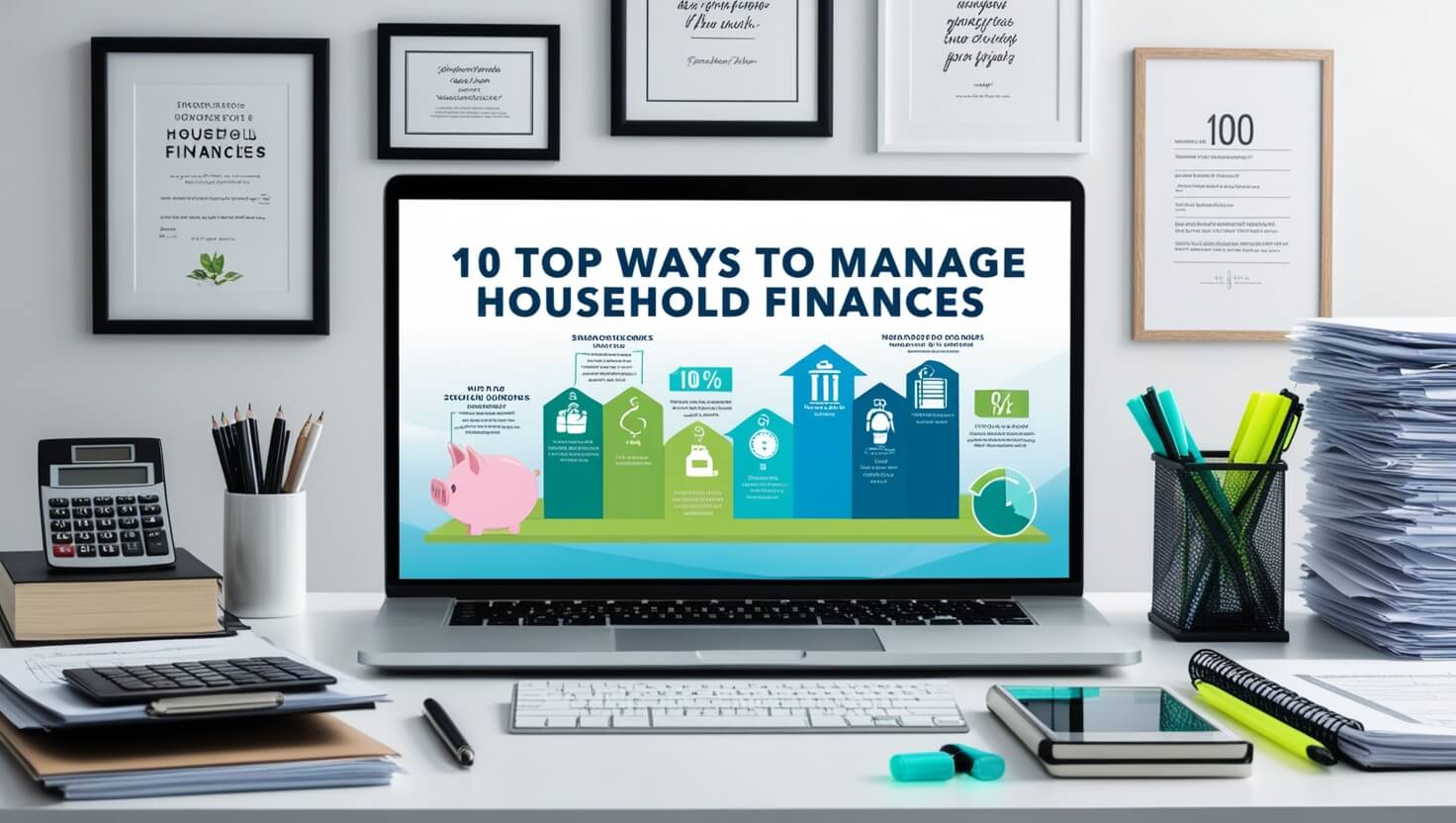In this article, I will discuss the Top Ways To Manage Household Finances easily.
The achievement of financial management is very important to maintain balance, reduce stress, and work towards long term financial goals.
Through creating a monthly budget, monitoring expenses, saving money on a monthly basis, and minimizing debt, household finances can be managed effectively. Let’s take a look at these strategies.
Key Point & Top Ways To Manage Household Finances List
| Keypoint | Description |
|---|---|
| Create a Monthly Budget | Outline income and expenses to manage finances effectively. |
| Set Financial Goals | Define short-term and long-term financial objectives. |
| Track Expenses | Monitor spending to identify saving opportunities. |
| Build an Emergency Fund | Save for unexpected expenses to ensure financial security. |
| Reduce Debt | Prioritize debt repayment to minimize interest costs. |
| Automate Savings | Set up automatic transfers to savings accounts for consistency. |
| Use Budgeting Apps | Utilize financial tools to simplify budget management. |
| Review Bills and Subscriptions | Identify unnecessary costs and cancel unused services. |
| Plan for Major Expenses | Allocate funds for big purchases to avoid financial strain. |
| Regular Financial Check-Ins | Review finances periodically to adjust and improve budgeting. |
1.Create a Monthly Budget
Creating a monthly budget is one of the most important means of controlling household finances because it outlines a clear financial plan that guarantees money is spent on basic necessities, savings, and debt repayment.
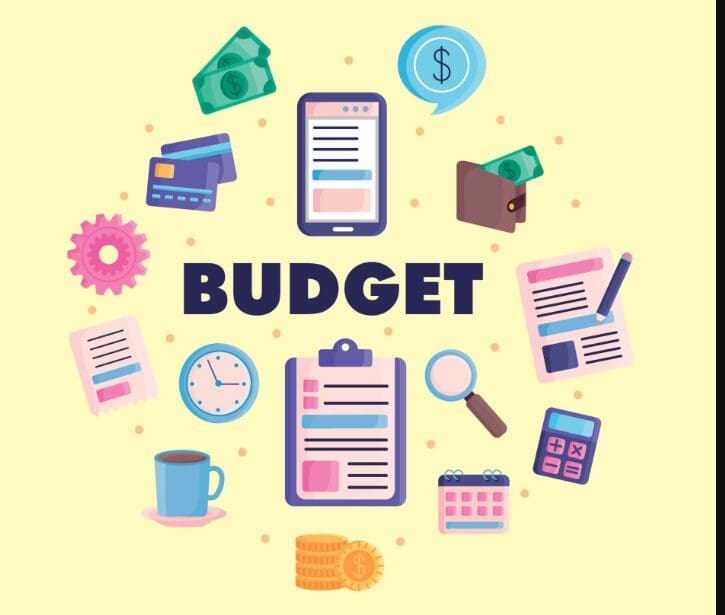
When spending is planned for, unnecessary expenses are avoided, financial burden is decreased, and choices are greatly improved.
By having proper systemic order of funds, the households can maintain a healthy economic standing, be ready for unexpected events, and aim to accomplish long-term vision without undue financial difficulty.
| Step | Description |
|---|---|
| Track Income | Record all sources of income, including salary, side hustles, and financial support. |
| List Expenses | Categorize expenses into essentials (rent, utilities) and non-essentials (entertainment). |
| Set Financial Goals | Define short-term and long-term goals, such as saving for emergencies or paying off debt. |
| Create a Budget Plan | Allocate a portion of income to each expense category and savings. |
| Use Budgeting Tools | Utilize apps or spreadsheets to monitor spending and adjust as needed. |
| Automate Savings | Set up automatic transfers to savings accounts to ensure consistent saving. |
| Review Regularly | Reassess the budget monthly to accommodate changes in income or expenses. |
| Minimize Debt | Prioritize paying off high-interest debts to reduce financial strain. |
2.Set Financial Goals
Setting financial goals is one of the best ways to manage household finances since it provides a direction and a purpose for every dollar earned.
With clear goals, prioritization of spending is guaranteed which ensures money is set aside for necessities, savings, and future investments.

Financial goals, be it short-term or long-term, promote discipline, curtail impulsive purchases, and aid build financial security.
By setting objectives, households are able to remain motivated, monitore their progress, and make informed financial decisions that culminate in stability in the long term.
| Step | Description |
|---|---|
| Identify Priorities | Determine what matters most to you, such as saving for a home, education, or retirement. |
| Define Short-Term Goals | Set achievable objectives (e.g., building an emergency fund or paying off a small debt). |
| Define Long-Term Goals | Plan for larger milestones (e.g., buying a house, funding children’s education, or retiring). |
| Set a Budget for Goals | Allocate a specific percentage of income to your financial goals. |
| Use Savings Tools | Leverage savings apps with basic KYC or minimal verification to automate and monitor progress. |
| Track Progress | Regularly review your financial goals and adjust based on changes in income or expenses. |
| Stay Realistic | Ensure goals are attainable within your income and current financial situation. |
3.Track Expenses
Tracking expenses is among the most efficient ways of managing household finances because it shows spending patterns which assist in picking out unnecessary behaviors and areas needing improvement.
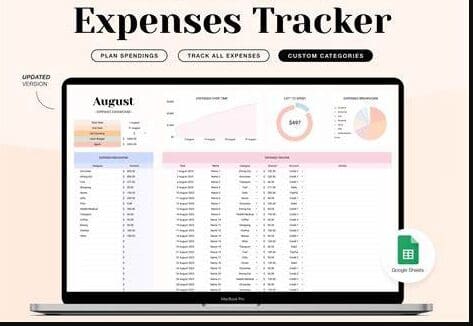
Having full control over every transaction allows households to take control of their finances, spend within reason, and most importantly, ensure the money is being used wisely.
In addition, self and family expense tracking aids in comprehensive budget adjustments, restricting financial leaks, and making educated choices in the end leading to increased savings, minimized debts, and everlasting financial stability.
| Step | Description |
|---|---|
| Categorize Expenses | Divide spending into fixed (rent, utilities) and variable (groceries, entertainment) categories. |
| Use Expense Trackers | Utilize apps that require minimal KYC for easy monitoring of daily spending. |
| Save Receipts | Keep digital or physical copies of receipts for accurate record-keeping. |
| Set a Spending Limit | Establish limits for each category to prevent overspending. |
| Analyze Monthly Trends | Review spending patterns monthly to identify areas for cost-cutting. |
| Automate Tracking | Link accounts to budgeting tools for real-time expense monitoring. |
| Review Statements | Regularly check bank and card statements to ensure accuracy and track expenses. |
4.Build an Emergency Fund
Creating an emergency fund is essential to managing household finances as it can support unexpected expenses such as medical emergencies, job loss, or urgent repairs.
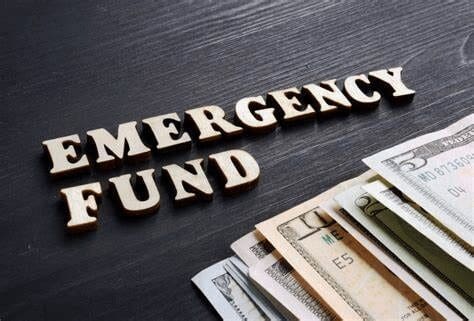
Having access to readily available savings decreases the likelihood of relying on debt, which lowers financial stress.
An emergency fund protects families from sudden expenses that arise without disturbing their financial stability and enables them to concentrate on their long term financial goals.
| Step | Description |
|---|---|
| Set a Savings Goal | Determine the target amount (e.g., 3–6 months of living expenses). |
| Open a Savings Account | Use minimal KYC apps or banks to create a dedicated emergency fund account. |
| Automate Savings | Set up automatic transfers to ensure consistent contributions to the fund. |
| Cut Non-Essential Costs | Reduce discretionary spending to allocate more money for savings. |
| Save Windfalls | Add bonuses, tax refunds, or unexpected earnings directly to the fund. |
| Track Progress | Regularly monitor the growth of the fund to stay motivated. |
| Avoid Withdrawals | Use the fund only for genuine emergencies to maintain its purpose. |
| Reassess Periodically | Revisit the target amount as expenses or income levels change. |
5.Reduce Debt
Reducing debt is usually a priority for most families and households, especially because it provides more income to cover necessities such as other payments, savings, and future financial goals.
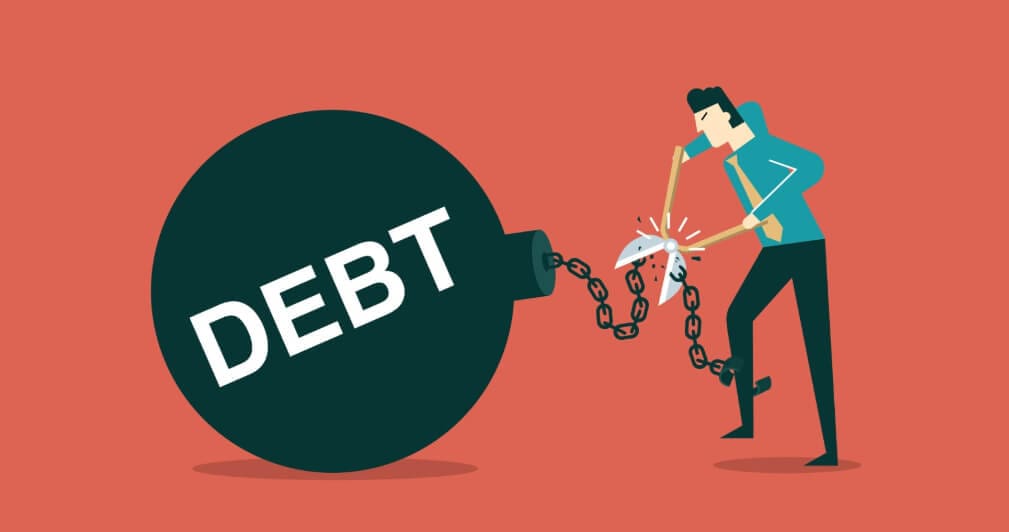
The elimination of debt gives multiple advantages and improves the flexibility of finances and the payment of the expenses. Paying off, or eliminating debt, enables households to regain control over their finances, reduces the stress related to money, and improves credit.
Having no debt also gives families chances to invest further and build wealth hence leading to financial freedom.
| Step | Description |
|---|---|
| Assess Your Debt | List all debts, including their balances, interest rates, and minimum payments. |
| Create a Payment Plan | Prioritize debts based on the interest rate (debt avalanche) or balance size (debt snowball). |
| Budget for Payments | Allocate a specific portion of your income for debt repayment in your monthly budget. |
| Negotiate Terms | Contact creditors to discuss lower interest rates or more manageable repayment plans. |
| Consolidate Debt | Use minimal KYC platforms or tools to consolidate multiple debts into one manageable loan. |
| Avoid New Debt | Limit the use of credit cards or loans while focusing on repayment. |
| Increase Income | Explore side hustles, freelancing, or part-time work to allocate extra income toward debt. |
| Track Progress | Regularly monitor repayment progress to stay motivated and make adjustments as needed. |
6.Automate Savings
Saving automatically is one of the most effective strategies that people can use to manage household finances, and it helps mitigate issues associated with self-control.

Automatically transferring money into different savings accounts helps a family focus on saving as opposed to spending, which is beneficial for accomplishing financial objectives.
This practice reduces the chances of overspending and forgetting to save. Eventually, these automated savings ensure financial stability, aid in establishing emergency funds and investors’ future projects.
| Step | Description |
|---|---|
| Choose a Savings Platform | Select a savings app or bank that requires minimal KYC for account setup. |
| Set Savings Goals | Define specific goals, such as building an emergency fund or saving for a large purchase. |
| Automate Transfers | Schedule recurring transfers from your primary account to your savings account. |
| Round-Up Savings | Use apps that round up purchases and transfer the spare change to savings. |
| Allocate Income | Set a fixed percentage of your income to be automatically saved each month. |
| Enable Notifications | Get alerts for successful transfers to stay informed and track progress. |
| Link Accounts | Connect your bank account to the savings app for seamless automation. |
| Review Regularly | Periodically review automated savings plans to ensure they align with your goals. |
7.Use Budgeting Apps
Budgeting applications rank among the most effective tools for household personal finance management since they allow monitoring of income, expenditure, and savings in real-time.

They provide information on spending patterns and enable households make prudent spending decisions. With automated categorization, budgeting apps and goal-setting features remove guesswork and enhance attitude towards money management.
Alerts for bills and overspending ensures financial discipline and waste reduction while increasing financial stability.
| Step | Description |
|---|---|
| Select an App | Choose a budgeting app that requires minimal KYC, such as those with quick verification processes. |
| Link Accounts | Connect your bank accounts to the app for real-time tracking of income and expenses. |
| Set Financial Goals | Define savings or spending goals within the app to align with your household needs. |
| Track Expenses | Use the app’s categorization feature to monitor and organize spending habits. |
| Automate Alerts | Enable notifications for bill reminders, spending limits, and savings milestones. |
| Analyze Trends | Review reports and graphs provided by the app to understand spending trends. |
| Create Budgets | Allocate specific amounts to categories like groceries, bills, and leisure based on insights. |
| Review Regularly | Update budgets and goals monthly to accommodate changes in income or expenses. |
8.Review Bills and Subscriptions
Checking bills is one of the best methods to control household spending, because it helps remove unnecessary costs and avoid overpayment.
A lot of families pay for services that they do not use, such as paying for appliances that need servicing, or paying subscriptions that they do not benefit from.
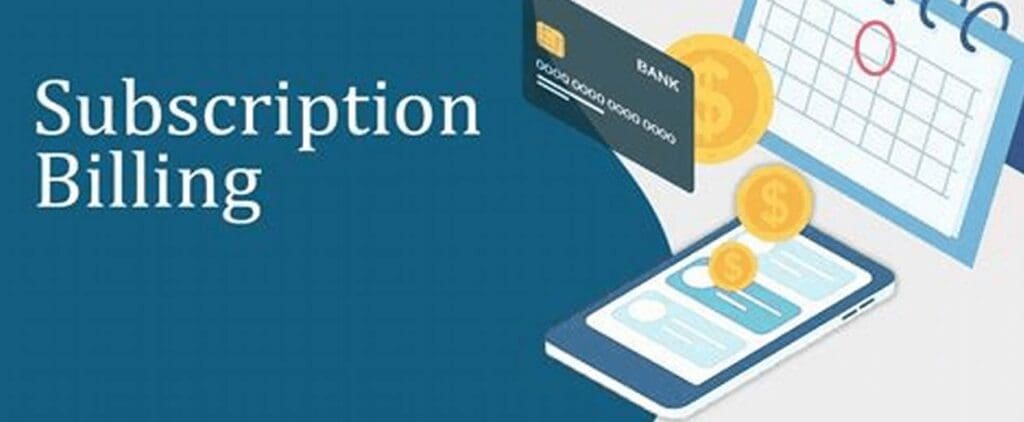
Monitoring these costs periodically ensures that funds available are used properly and directed towards something of value or into savings.
Cutting useless subscriptions and getting better prices gives households extra cash and helps them plan their finances better.
| Step | Description |
|---|---|
| List All Subscriptions | Create a comprehensive list of active subscriptions (e.g., streaming, gym memberships). |
| Analyze Monthly Bills | Review recurring bills for services like utilities, internet, and phone plans. |
| Identify Unused Services | Highlight subscriptions or bills for services you no longer use or need. |
| Compare Options | Research cheaper alternatives for utilities, internet, or streaming services. |
| Cancel Unnecessary Services | Use apps or online platforms with minimal KYC to streamline cancellations. |
| Set Alerts | Enable notifications for upcoming bill due dates to avoid late fees. |
| Negotiate Rates | Contact service providers to negotiate better rates or discounts. |
| Track Changes | Monitor your account for any adjustments after implementing changes. |
9.Plan for Major Expenses
Managing your household finances can be a complex issue, but planning ahead will make it easier.
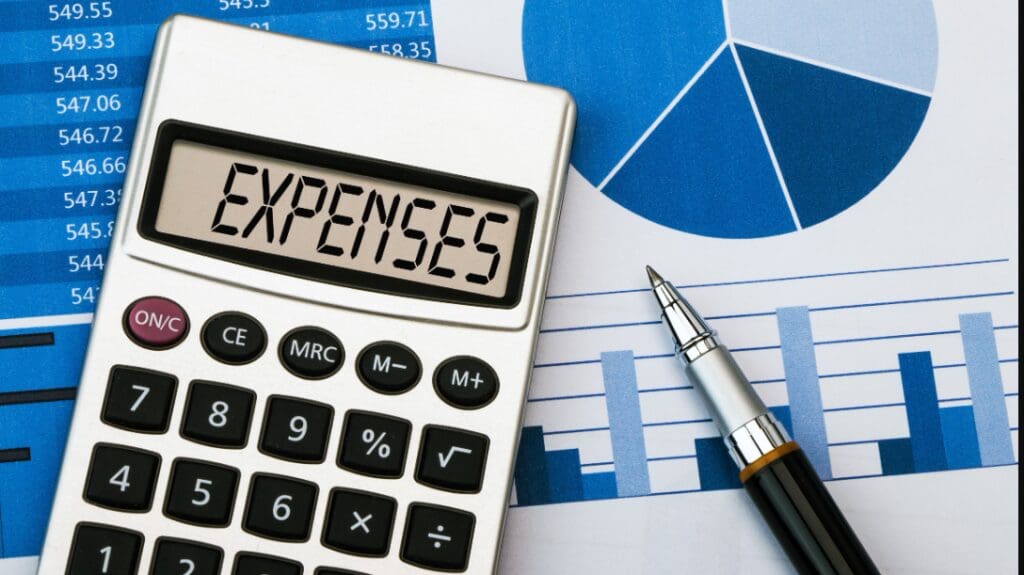
Planning helps provide for future expenses. Setting aside money for large purchases like a new home or education helps maintain financial balance and eliminates the need to go into debt.
Planning strategically helps you take advantage of sales and assists in making better budgeting decisions, all of which drastically improve your overall financial security.
| Step | Description |
|---|---|
| Identify the Expense | Clearly define the major expense (e.g., education, wedding, home purchase). |
| Set a Target Amount | Determine the total cost and create a realistic saving goal. |
| Set a Timeline | Decide when the expense will occur to calculate monthly savings requirements. |
| Open a Savings Account | Use minimal KYC apps or banks to open a dedicated account for this purpose. |
| Automate Contributions | Schedule recurring deposits to the savings account to ensure consistent progress. |
| Cut Non-Essential Spending | Reduce discretionary expenses to allocate more funds for the goal. |
| Track Progress | Monitor the growth of savings regularly to stay motivated and on track. |
| Adjust as Needed | Reassess your plan in case of changes in income, expenses, or the target amount. |
10.Regular Financial Check-Ins
Consistent financial check-ins are critical for managing household finances since they assist in ensuring that financial goals are on target and that any changes are made when necessary.

Through regular reviews of income, expenses, and savings, households can monitor their personal finances, notice possible financial leaks, and track progress over time.
This habit minimizes financial surprises and encourages more discipline and foresight in decision-making, thereby improving money management as well as achieving long-term financial stability.
| Step | Description |
|---|---|
| Schedule Check-Ins | Set a regular date (e.g., monthly) to review your financial situation. |
| Review Income | Assess all sources of income to ensure accuracy and identify any changes. |
| Analyze Expenses | Compare actual spending to your budget and note any variances. |
| Evaluate Savings | Check progress towards financial goals like emergency funds or major expenses. |
| Monitor Debt | Review outstanding debts and track repayment progress to stay on track. |
| Update Financial Goals | Adjust savings or spending goals based on current financial conditions. |
| Use Minimal KYC Tools | Utilize budgeting apps or savings platforms requiring minimal verification for ease. |
| Track Investments | Evaluate the performance of your investments and adjust as needed. |
Conclusion
To adeptly control household finances, a structured plan is mandatory that incorporates budgeting, goal-tracking, spending analysis, and paying off expenses. Savings automation, budgeting apps, and bill reviews help households control spending and improve financial safety.
Having plans for upcoming large expenses and checking finances at regular intervals help manage stress. Following these fundamental strategies for financial management guarantee success and help families gain freedom and a strong financial foundation in the future.


